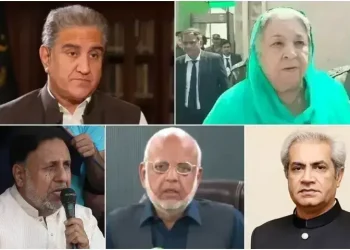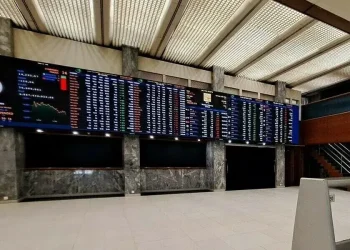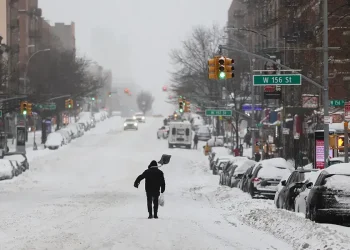The surviving Assalia family members are trying to flee Jabalia as Israeli forces return to the north – but they don’t know where to go.
In Gaza’s north, two roads run between the city of Jabalia to the Jabalia refugee camp.
As-Sikka Street passes along the route of the railway that used to cross Gaza before the creation of Israel, linking it to Iraq, Turkey, Egypt and the holy city of Mecca in Saudi Arabia.
Running parallel to As-Sikka is a smaller street known as Assalia, named after the large Assalia family that inhabits that neighbourhood.
Late last week, 26 members of the Assalia family were killed, and six houses on that street were reduced to rubble by an Israeli attack, according to witness testimony. The street is now barely a dirt track, as seen from images following the event’s aftermath, which media reviewed, with bodies emerging each day from under the debris.
Ibrahim Assalia, 46, a media lecturer originally from Gaza who has been living in the United Kingdom since 2006, was on the phone with his brother as the attack on Jabalia, and his family, took place.
“Pray for me, they are heavily shelling the area,” Assalia recalled his brother as saying on Saturday.
His brother Mohammed and sisters Weam and Assel survived the shelling. But since then, their troubles have only mounted.
The bombardment came as a surprise – life had slowly been returning to normal with the withdrawal of Israeli troops from the north of Gaza, Assalia said.
Through phone calls and airdropped leaflets, the Israeli army has instructed Palestinians in Jabalia to move west, ostensibly to continue their attacks in the area.
But there had been no warning for Assalia’s relatives killed on Saturday, who included children and the elderly.
“They were in their homes. No one told them to leave,” he said.
Generations killed, memories destroyed
Israel has described its return to the north as part of a so-called “mop-up” stage of the war, with Hamas saying its fighters are engaged in battles there.
Critics and Israeli military officials, quoted anonymously in several media reports, say the re-emergence of Hamas in northern Gaza is a consequence of an Israeli failure to plan for what will come after the war, instead choosing to carry on the bombardment and reject talk of a permanent ceasefire.
Many of the 26 people killed were close cousins of Assalia, others more distant relatives he saw less frequently.
His family members were part of the tapestry of his annual visits to his parents in Gaza – memories now blighted through nearly eight months of war.
Last year’s visit, which Assalia made in August before being trapped by the war, was more urgent; his father had been diagnosed with blood cancer.
Unable to leave the enclave to receive treatment in time due to Israel’s bombing, Assalia’s father died in the early days of the conflict. Assalia paid $10,000 to have his disabled mother, Fatima, who cannot walk, and another brother, Abdullah, to help her, be escorted to Egypt from Gaza.
Throughout the war, hundreds of others from the extended Assalia family have been killed or displaced.
Assalia, a media studies lecturer in London who worked as a news presenter for Palestine TV from 1998 to 2006, said his annual return to Gaza will never be the same again.
“My childhood memories – all have been destroyed,” he said.
Like many from Jabalia, Assalia’s siblings are not sure where to go next.
They left Jabalia with their families on Sunday, immediately after the evacuation order from Israeli forces, in a panic, grabbing only cash and documents showing their rights to their land, he said.
“They are just running towards the sea because they know that’s west, but they’re just standing in the streets,” Assalia said.
There are hardly any houses left standing, and schools are packed with the displaced, he said.









 American Dollar Exchange Rate
American Dollar Exchange Rate